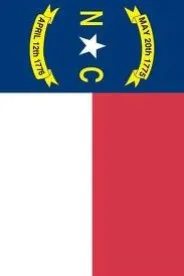Overriding a gubernatorial veto, on May 11 the North Carolina legislature significantly limited the liability of hog farms in any future nuisance lawsuits. See 2017 N.C. Sess. Laws 11. The new law caps the compensatory damages that may be awarded to a plaintiff bringing a private nuisance action to either the reduction in fair market value of a property, if the nuisance is permanent, or to the diminution of the property’s fair rental value, if the nuisance is temporary.
North Carolina has the second-largest hog farming industry in the country, with operations valued at more than $1 billion. As a result, approximately 4,000 hog waste lagoons are located across the state, grandfathered into operation under a 2007 moratorium that bans construction of new lagoons. In 2014, two dozen lawsuits involving more than 500 plaintiffs were filed against Murphy-Brown LLC, a Smithfield Foods subsidiary, alleging that some of the company’s lagoon-utilizing farms created a nuisance for neighboring homes and seeking compensatory and punitive damages, as well as injunctive relief.
In response, Representative John R. Bell, the House Majority Leader, introduced House Bill 467, seeking to protect hog farmers (as well as other agricultural or forestry operations in the state) by limiting liability in nuisance cases. The bill was sent to the Governor’s desk, but was vetoed out of concern that “[s]pecial protection for one industry opens the door to weakening [the state’s] nuisance laws in other areas.” The House and Senate voted to overturn the veto less than a week later.
Under the new law, total damages that can be awarded to any plaintiff or successor in interest are capped at the fair market value of the property, regardless of the defendant against which damages are sought. Once a plaintiff has recovered damages equivalent to the property value, further nuisance claims, even against additional defendants, are barred. However, the law was amended to only apply to lawsuits filed after the date of enactment, after bipartisan concern that the legislative branch was overstepping into judicial branch territory, particularly in regards to the Murphy-Brown litigation.
In 2011, the governor of Missouri vetoed a Republican-backed bill that would have limited punitive damages in litigation against corporate hog farms, but legislation limiting compensatory damages was signed in 2012. This March, the Iowa state government also passed legislation creating a new “public interest” affirmative defense, and capping special compensatory damages in animal feeding lot nuisance litigation.
By Katelin Shugart-Schmidt





 />i
/>i
